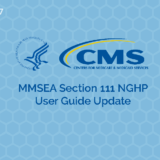The two Congressmen that worked together to introduce the bill that became the SMART Act of 2012, amending the Medicare Secondary Payer statute (MSP)[1], have teamed up again, this time on May 18, 2018, to introduce the PAID Act, which stands for Provide Accurate Information Directly Act. The PAID Act, introduced as House Bill 5881, is aimed at helping Medicare beneficiaries and parties that settle injury cases with beneficiaries get more complete injury-related medical payment reimbursement information than they get now. The PAID Act would require the Centers for Medicare & Medicaid Services (CMS), the sub agency under the Department of Health and Human Services (HHS) charged with the responsibility of running Medicare and creating regulations implementing the MSP, to provide insurance carriers and injured Medicare beneficiaries information about how much money has been spent toward injury-related Medicare covered medical items, services, and expenses (“Medicals”) by not only traditional Medicare (Parts A & B) as it does now, but privately administered Medicare Advantage (Part C) and Medicare Prescription Drug (Part D) Plans, and the federally funded, predominantly state administered needs-based Medicaid plans, too.
As it exists, CMS provides various updates on mounting or finalized Medicals paid by traditional Medicare after being notified of upcoming settlements or receiving confirmation of settlements. The updates are provided through the CMS web portal to parties that submit proof of authorization (Authorized Parties) to access the information. The MSP provides direct statutory lien rights to the U.S. as well as equitable subrogation rights to the U.S. to arm Medicare with enforcement tools allowing it to be reimbursed for amounts conditionally paid that should be or should have been paid by Workers’ Compensation, Automobile Insurance, Liability Insurance including Self-Insurance, or No Fault Insurance (Primary Plans). CMS provides the running total of the Medicare lien amount to help parties that want to settle know the amount to be paid to Medicare to satisfy its lien. The SMART Act amendments to the MSP added a three year statute of limitations for the U.S. to bring recovery lawsuits enforcing Medicare’s conditional payment recovery rights and outlined demand amount update procedures and enabled regulations to be created by CMS, further defining procedures for Authorized Parties to obtain updated and reliable information from the CMS portal on conditional payments by Medicare.
However, neither the MSP nor its SMART Act amendments contemplated the difficulties that Primary Plans, injured beneficiaries, and other Authorized Parties have experienced in getting updated information on prior injury-related medical payments made by Medicaid entities and/or the privately administered Medicare plans referenced above. If CMS provided the payment information contemplated by the PAID Act in addition to the past payment of Medicals made by traditional Medicare, settling parties and their representatives would have a more efficient mechanism to determine proposed payment obligations toward a larger portion of past Medicals (collectively referred to in this article as Total Government Reimbursement Amounts). When Workers’ Compensation Medicare Set-Asides (WCMSAs) are submitted to CMS for review or when any MSA allocation report is prepared, the standard is to project future costs for both medical services as well as prescription drug expenses. However, CMS does not currently provide information about amounts paid for prescription drug expenses when parties or their authorized representatives request payment information through its web portal as those expenses are administered privately. Therefore, the payment information available from CMS only provides part of the picture.
Primary Plans almost always condition payment of settlement funds on the agreement of beneficiaries to reimburse past conditional payments made by Medicare and often reference any applicable payment obligations to Medicaid[2] along with an acknowledgment by beneficiaries of their obligations to not prematurely bill Medicare for future Medicals pursuant to the MSP. Payments for past Medicals by Part C, Part D and Medicaid Plans regarding settled injuries have not gotten the same attention that traditional Medicare conditional payments have because CMS is charged with the responsibility by the Secretary of HHS pursuant to the Federal Claims Collection Act[3] to focus on the recovery rights of the U.S. under the MSP for conditional payments made through traditional Medicare.
The PAID Act sounds great in principle. However, because the text of the bill will not be available until June 18, 2018, it is hard to say whether it will gain traction as written. Because traditional Medicare’s lien rights are enforced by the U.S. pursuant to the MSP, the PAID Act will not likely need to reference prioritization of lien rights. A wrinkle that has arisen is that private cause of action claims by Part C Plans or their assigns under the MSP are regularly being filed and it seems that MSP private cause of action claims could be filed by Part D plans too[4]. Sometimes, beneficiaries transfer between traditional Medicare coverage and Part C Plans from year to year. Therefore, settling parties interested in addressing potential Medicare recovery rights should pay attention to the rights of Part C and Part D Plans for recovery of payment of past Medicals. State legislatures, state Medicaid agencies, and courts asked to enforce Medicaid liens also need to consider the federal anti-lien statute[5] when addressing Medicaid lien matters alone or when Medicare has outstanding lien interests.
Putting the priority of Medicare liens over other liens to the side for a moment, the PAID Act would seem extremely helpful in providing a big picture look at the Total Government Reimbursement Amounts. Congressman Gus Bilirakis (R-FL) stated that “this legislation will ensure that beneficiaries, Medicare and Medicaid have a clear and quick way to identify whether or not a participant has an MSP obligation, and provide information about how that obligation can be resolved.” He further stated that “the PAID Act represents a ‘win-win-win’ for beneficiaries, plans, and the federal taxpayer.” Congressman Ron Kind (D-WI) added that “Congress can save significant money for taxpayers and drive a better coordination of benefits if it mandates the sharing of certain information between CMS and settling parties.”
Medivest will continue to monitor the progress of this legislation and encourages readers to consider supporting it once the text of the PAID Act becomes available. The language of the bill will be available here next month. Information about how to reach your local Congressional representative regarding the PAID Act may be found here.
[1] 42 U.S.C. §1395y(b) et. seq. The MSP, a series of provisions that amend the Social Security Act and address both the order of payments for injury-related Medicare covered and otherwise reimbursable medical items, services and expenses like prescription drug expenses (Medicals) as well as the right of the U.S. Government to be reimbursed for any payments it makes for Medicals.
[2] Medicaid has lien rights derived from state law allowing it to reach portions of settlements that compensated medical bills paid by the respective state’s Medicaid agency as described under the U.S. Supreme Court’s decision in the Ahlborn case, cited in footnote four below, and as legislatively reinstated by the Bipartisan Budget Act (BBA) of 2018’s repeal of corresponding provisions of the BBA of 2013.
[3] 31 U.S.C. §3711, also known as the FCCA – requires the heads of legislative agencies to attempt to collect claims of the U.S. (and authorizes waivers and compromises of claims valued at up to $100,000 when a liable person does not have present/prospective ability to pay significant amount of claim or cost of collecting claim is likely to be more than amount recovered).
[4] The same MSP regulations in 42 C.F.R. § 422.108 are extended to Medicare Part D Plans via 42 C.F.R. § 423.462. Therefore, Part D Plans would likely be held to have the same MSP recovery rights as MAOs including the possibility of seeking double damages under the MSP private cause of action should a primary payer deny the Part D Plan reimbursement of due conditional payments.
[5] 42 U.S.C. § 1396p(a)(1). See also, Wos v. E.M.A. ex rel. Johnson, 568 U.S. 627, 630, 133 S. Ct. 1391, 1395, 185 L. Ed. 2d 471 (2013)(“The anti-lien provision pre-empts a State’s effort to take any portion of a Medicaid beneficiary’s tort judgment or settlement not ‘designated as payments for medical care.’” citing Arkansas Dept. of Health and Human Servs. v. Ahlborn, 547 U.S. 268, 284, 126 S.Ct. 1752, 164 L.Ed.2d 459 (2006)).









